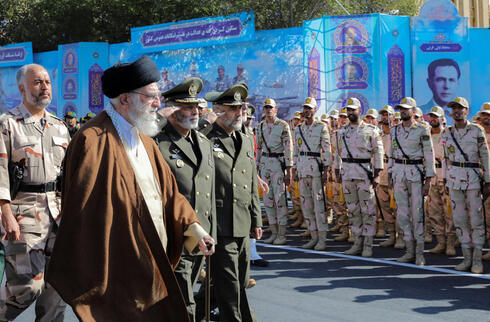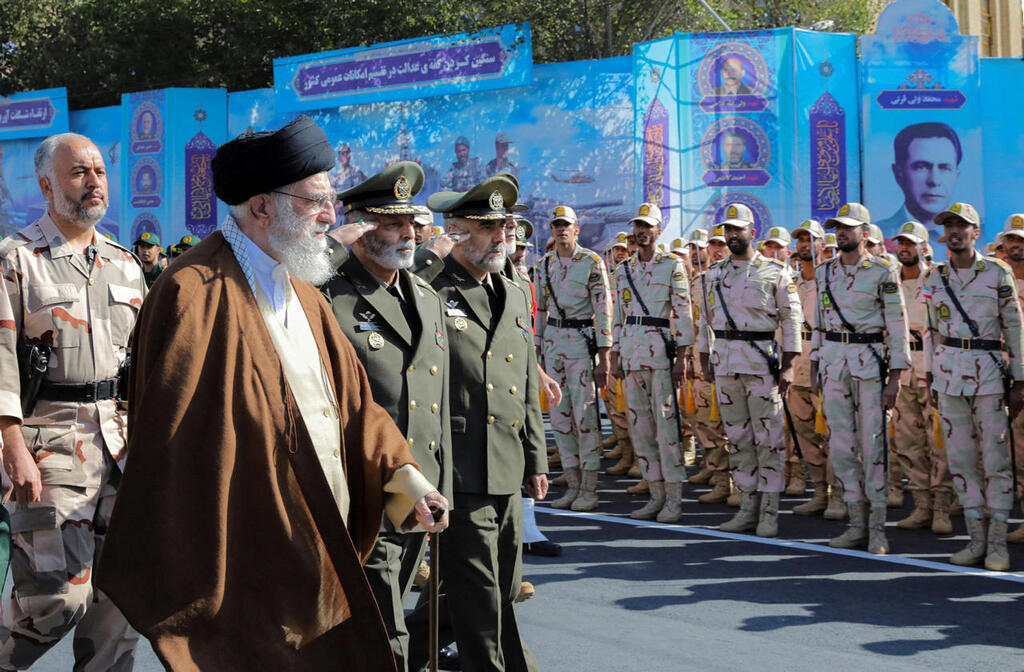
Analysis
Iranian involvement in Gaza war worries oil market
Iran's joining the war in one way or another will affect the supply routes, but analysts do not foresee an acute impact as the one felt after Russia's invasion of Ukraine
Oil prices on the world market have soared since the fighting between Israel and Hamas began on Saturday. On Monday, the first trading day since the start of the campaign, the price of a barrel of Brent climbed by 4.2% and settled at $88.15, while the price of a barrel of WTI rose by 4.3% to $86.38. Yesterday, the market calmed down a bit and there was a decrease of about 35 cents in the prices of both types of oil.
The increase in prices stems from the traders' fear that the conflict in the Gaza Strip will spread to other regions in the Middle East, which could lead to disruptions in the supply of oil to the world market. The main concern is about Iran joining the conflict one way or another, which could affect the oil supply routes, mainly through the Straits of Hormuz. However, most analysts believe that in the long term the impact of the fighting will be limited, and certainly not to the same extent that was felt in the market after Russia's invasion of Ukraine last February - when the price of a barrel crossed $120.
Referring to the market situation, the investment bank Morgan Stanley published an assessment on Tuesday that the risk even in the short term to the oil supply as a result of the fighting in Gaza is low, but qualified this by saying that the trend will reverse if the violence spreads to other fronts. This statement is based on the expectation that the conflict between Israel and the Gaza terrorist organization, however violent it may be, will not affect in the long term the global demand for oil or the oil output of OPEC companies, especially those in the Middle East.
The analysts agree that the war between Israel and Hamas will have a more significant impact on the global oil market if Iran is involved. At the moment, the scenario of Iran entering direct combat seems unlikely, but neither Israel nor the United States are taking risks. This was reflected in the order by United States Secretary of Defense Lloyd Austin on the movement of the aircraft carrier Gerald Ford to the eastern Mediterranean in a discouraging message to Iran and its supporters in the region, especially Hezbollah.
But even if Iran does not act militarily in the current war, there is a possibility that the American administration will impose its sanctions on its oil industry. This is if it is proven that Iran was involved in planning the murderous attack by Hamas. Reports of the aid that Iran gave to Hamas before the attack were published earlier this week in the American media, but they were vigorously denied by the Ayatollah regime in Tehran. The Biden administration also announced that at this stage it has no evidence of direct Iranian involvement in the murder spree that emanated from the Gaza Strip.
At the same time, if the Americans do take tougher measures to restrict the Iranian oil industry, this will affect the world market, although Iran's weight in the world oil market is relatively minor. In recent months, there has been a feeling that the United States is turning a blind eye and allowing Iran to increase its oil production, and hence also exports to world markets, especially China. Since the beginning of the year, there are estimates that Iran's oil production has increased by 700,000 barrels, although there is no official confirmation of this, since Iran does not publish data on the subject.
The explanation for the lenient American approach was related to the administration's desire to prevent shocks in the world oil market, in order to increase the supply and prevent the rise in prices following the fighting in Ukraine. Another explanation: the United States is interested in making it easier for Iran to supply more oil in order to create a more positive atmosphere that will eventually lead to agreements on the nuclear issue.
Indeed, last year Iran's revenues from exporting crude oil and condensate reached $42.6 billion - a record since 2018, when former U.S. President Donald Trump decided to withdraw from the nuclear agreement and reinstate the sanctions regime on Iran. For comparison, in 2021, Iran's oil revenues reached $25.5 billion. According to August 2023 data, Iran's oil export level reached 2.2 million barrels per day. Although this is lower than the record registered in 2017 (about 2.8 million barrels), it is still the highest export level in the last five years. According to analysts' estimates, if Iran gets involved in a war, or if the United States adopts a more aggressive policy against its oil industry, the potential increase in barrel prices ranges from 5 to 10 dollars.
The economy has lost momentum
The war in Gaza is taking place at the same time as the annual meeting of the International Monetary Fund and the World Bank in Marrakesh, Morocco. According to the IMF, the global economy has lost its growth momentum due to the interest rate hikes, the invasion of Ukraine and the geopolitical conflicts. It noted that the war between Israel and Hamas creates new uncertainty.
Therefore, IMF experts predict that global growth will slow to 2.9% in 2024 compared to the 3% growth expected this year. The current forecast for next year reflects a slight decrease compared to the previous forecast published by the fund in July, when it stood at 3%. The slowdown comes because the world economy has not yet fully recovered from the recession created by the Coronavirus, which reduced global economic output by approximately $3.7 trillion in the last three years compared to the three years preceding the epidemic. Now, due to the conflict in the Middle East, the world economy may fall into another slowdown.
Doron Peskin is an analyst of Middle Eastern economies and the head of Concord MENA, a company specializing in public sentiment analysis of Arab countries.














